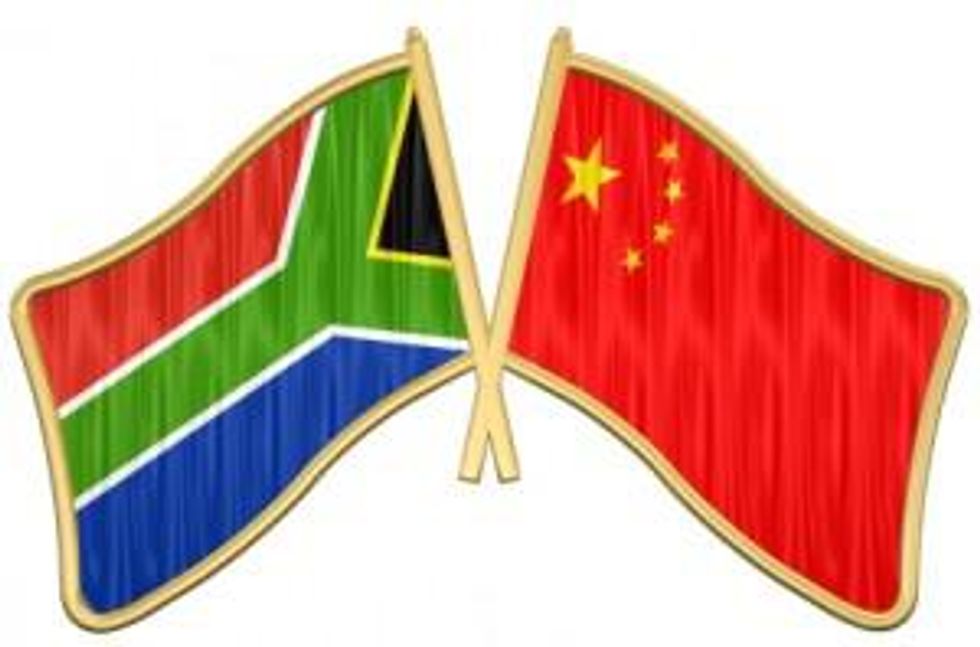Are Chinese Investors Likely to Invest Further in SA Platinum?
Wesizwe is controlled by a Chinese investment consortium. Given what the company now knows, how likely is it that it will make a similar move in the future?
When the China-Africa Jinchuan Investment consortium, composed of diversified miner Jinchuan Group (JNMC) and the China-Africa Development Fund (CADFund), agreed to pay $227 million for a 45 percent stake in Wesizwe Platinum (OTC Pink:WSZWF), it was not just another mining deal. South Africa’s platinum mining industry became a bit more diverse as Chinese investors stepped in. But given the conditions of the deal and the consortium’s experience executing it, how likely is it to invest further?
In addition to purchasing the stake in Wesizwe, JNMC and the CADFund committed to underwriting a credit facility for Frischgewaagd-Ledig (now Bakubung) in the amount of $650 million. JNMC and the CADFund also vowed guaranteed funding for any capital shortfalls until the project reaches full production.
Shareholders have therefore been offered “a unique proposition” — Wesizwe’s flagship project is fully funded with “no prospect of further equity dilution.”
Bakubung is in the western limb of South Africa’s Bushveld Complex, a mineral-rich area. The Bakubung mine is estimated to have a 35-year mine life and will be capable of annual production of 330,000 ounces of platinum group metals (PGMs).
Though Jinchuan brought mining and technical experience with its money, some were surprised at the amount it was willing to pay given the circumstances.
“Most of us were shaking our heads when this deal was announced,” Peter Major, a mining analyst at Cadiz, an asset management firm specializing in Sino-African investments, told Asia Times.
“For a brand new group to enter this field, and sink a shaft that deep [nearly a kilometer] is quite something. They also have to build everything — the employee village, a processing plant and all the other elements that go with a mine of this size,” Major said.
In addition to the development challenges Bakubung presents, the Chinese investors will have to adapt to other operating conditions in South Africa. When they entered the game, those already playing were pondering the security of adequate water and energy supplies and were trying to manage rapidly-rising costs.
Under Chinese control, Wesizwe did not escape the grips of cost inflation. The price tag for Bakubung has increased, with the company revising the capital budget estimate up to R7.9 billion in real terms from R6.5 billion.
CEO Jianke Gao described the increases as “troublesome” and said costs could escalate further to R12 billion.
Chinese investors additionally had to adapt to the concept of black empowerment, which requires a certain percentage of black ownership in companies. With access to Bakubung, they were also introduced to the depths to which South African cultural and community issues get intertwined with mining.
The Chinese found themselves operating in an environment where labor is approached much differently.
“In China the equipment and people never stop working and mines run 24/7. This is not the case in South Africa,” Gao said.
On the contrary, South African miners have developed a reputation for downing their tools and demanding more money. This year, that trend reached new heights amid the viral and violent labor strikes that erupted within the nation’s mining industry.
Furthermore, South Africa’s president, Jacob Zuma, is one of the African leaders who has urged caution and consideration in the ever-growing trade ties China is developing on the continent.
At the China-Africa Forum, Zuma said, “Africa’s commitment to China’s development has been demonstrated by supply of raw materials, other products and technology transfer.”
“This trade pattern is unsustainable in the long term,” he added.
China is commonly criticized for exporting Africa’s valuable resources while selling it cheap goods and thus weighing on the continent’s ability to benefit and develop. But the tides are changing and African nations are demanding more. They want jobs, they want more social and infrastructural investments and they want companies to extend their mining projects further downstream, thereby adding value.
Wesizwe appears to have already factored in these changing rules of engagement. It has stated that it does not plan to import Chinese labor to operate the mine and that its plans include building a processing plant.
But that is what the company did to get this project off the ground. Now that it can see the landscape more clearly, one may wonder about the likelihood of further Chinese investment in South Africa’s mining industry.
China is a top auto market and a top auto manufacturer. An increasing number of the vehicles that it manufactures and sells in domestic and foreign markets are subject to environmental standards. To comply, these vehicles must be fit with catalytic converters, which require PGMs. And as many markets, including China’s, are facing an upcoming tightening of those regulations, more of these metals will be needed.
South Africa, though it presents challenges, possesses about 80 percent of the world’s platinum reserves.
Gao has given hints to the future with his acknowledgment of the importance of scale in the platinum industry.
He also said, “I have worked in different mining regions and find that South Africa is a well-established and mature mining region compared to other parts of the world.”
However, on Tuesday any lingering questions were pushed further at bay.
The flagship Bakubung mine will not be the first and last developed by Wesizwe, Hamlet Morule, corporate affairs and investor relations executive, told Mining Weekly. Rather, Wesizwe is intended to be a “springboard” for further Chinese expansion in the nation.
Securities Disclosure: I, Michelle Smith, do not hold equity interests in any of the companies mentioned in this article.
